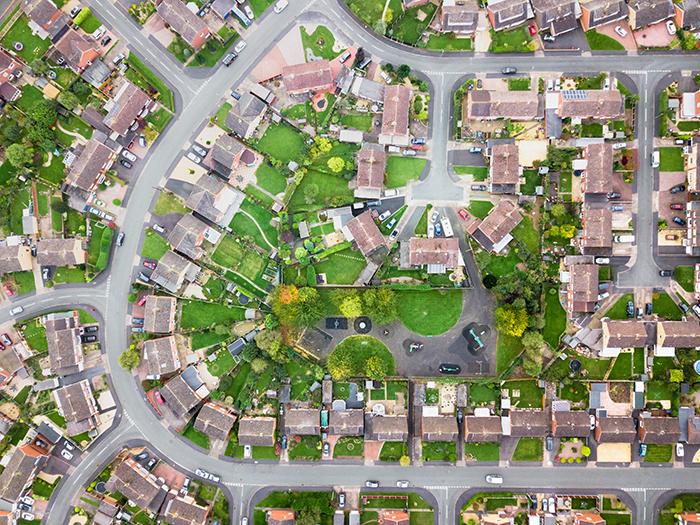
UK house price annual growth eased to 11.8% in July making the average price of a home £293,221, according to the latest Halifax house price index, while transaction prices slipped for the first time in 13 months.
Year-on-year growth fell from 12.5% the month before, as house prices fell marginally by 0.1% in July, the first fall since June 2021, says the lender’s report.
Wales topped the table for annual house price inflation, up by 14.7%, with an average property price of £222,639. It was closely followed by the South West of England, which rose by 14.3%, with an average property cost of £310,846.
London continues to record slower annual house price inflation than other UK regions, although the rate of 7.9% is the highest in almost five years, amounting to an average property cost of £551,777.
First-time buyer annual inflation fell to 10.7% in July, from 12.4% in June, and continues to be outstripped by price rises seen for home-movers, which posted 12% annual growth, down from 12.5%.
Halifax managing director Russell Galley says: “While we shouldn’t read too much into any single month, especially as the fall is only fractional, a slowdown in annual house price growth has been expected for some time.
“That said, some of the drivers of the buoyant market we’ve seen over recent years – such as extra funds saved during the pandemic, fundamental changes in how people use their homes, and investment demand, still remain evident. The extremely short supply of homes for sale is also a significant long-term challenge but serves to underpin high property prices.
“Looking ahead, house prices are likely to come under more pressure as those market tailwinds fade further and the headwinds of rising interest rates and increased living costs take a firmer hold. Therefore a slowing of annual house price inflation still seems the most likely scenario.”
Quilter mortgage expert Karen Noye adds: “For the first time in 13 months, house prices have failed to rise month on month. With the Bank of England base rate now at 1.75% and jumping ever higher, this may now be the beginning of a trend where house prices show some weakness.
“The pandemic put the housing market into overdrive after the flurry of activity which was at that point based on a change in working habits, the race for space, the stamp duty holiday and ultra-low interest rates. Now that the restrictions of the pandemic have eased and working habits have bedded in people’s immediate desire to move has abated.
“Similarly, the stamp duty holiday has been finished for some time now and interest rates are skyrocketing meaning cheap mortgage deals are a thing of the past.
“All these factors or more importantly a lack of these factors will reduce demand. Repossessions may increase as people struggle to pay for the increased cost of living and mortgage payments and therefore more stock may find its way onto the market. A lack of demand and an increase in stock will have the natural effect of pushing down prices.
“The autumn and winter could prove to be the tipping point for many as they struggle with increased bills and opt to move to smaller accommodation.”



